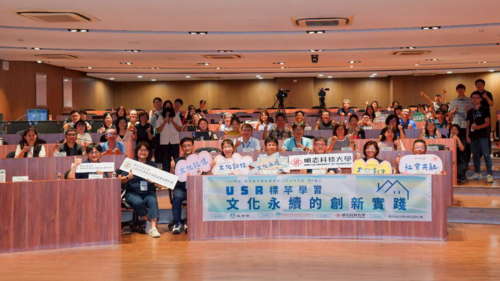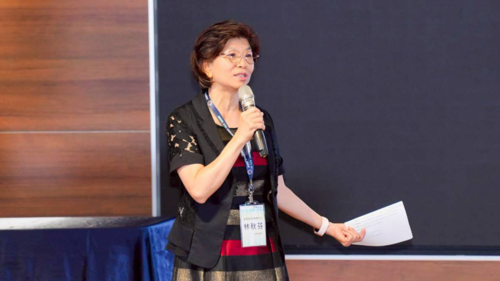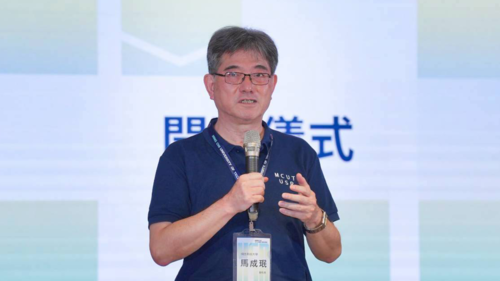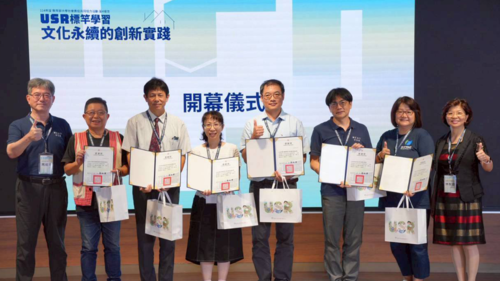2025 Ministry of Education University Social Responsibility Joint Empowerment Program USR Benchmark Learning – Innovative Practices in Cultural Sustainability
Ming Chi University of Technology and the Ministry of Education’s University Social Responsibility (USR) Promotion Center jointly organized the 2025 USR Joint Empowerment Program: Benchmark Learning – Innovative Practices in Cultural Sustainability on August 26. The event was grandly held at the Ming Chi Auditorium, attracting nearly 300 participants from universities and colleges across Taiwan, both in-person and online. The focus of this year’s program was “Cultural Sustainability,” with discussions centered on cultural innovation and sustainable development.
The event was co-hosted by Professor Emerita Chiu-Fen Lin, Co-Convener of the MOE USR Promotion Center, and Dr. Cheng-Min Ma, Vice President of Ming Chi University of Technology. In the morning session, Su-Yueh Lu, Honorary Chairperson of the Taiwan Community Empowerment Network, delivered a keynote speech titled “Local Practices of Cultural Sustainability through University USR.” He examined how universities advance local culture through USR initiatives, and, drawing on the global framework of the United Nations’ Sustainable Development Goals (SDGs), offered international perspectives and future outlooks on cultural issues, providing fresh inspiration to participants.
The program also featured ten national USR project leaders addressing cultural sustainability, sharing insights under three main themes: “USR’s Synergistic Effects on Local Culture, Society, and Economy,” “Building Local Learning Curricula,” and “Case Studies in Cultural Sustainability.” The discussions highlighted diverse initiatives ranging from religious traditions and craftsmanship revival to local revitalization and Indigenous cultural heritage. Presenters shared strategies and sustainable approaches for transforming academic expertise into concrete community actions, while also developing localized cultural sustainability curricula. Through course design, faculty-student participation, and community collaboration, universities showcased dual-track efforts in both cultural preservation and innovation, underscoring their vital role in safeguarding and revitalizing local culture.
Professor Emerita Chiu-Fen Lin emphasized that cultural sustainability is one of the most challenging core issues within the SDGs. She stressed that universities should prioritize local engagement and talent cultivation by integrating interdisciplinary curriculum design with practical action. This approach deepens students’ and faculty’s understanding of and participation in local culture, transforming teaching outcomes into meaningful local impact. Through collaboration between universities and communities, not only can local cultural characteristics be preserved, but new opportunities for community development can also emerge—positioning universities as essential partners in cultural innovation and sustainability.
Vice President Cherng-Min Ma remarked that the true value of the USR program lies in combining academic expertise with the real needs of local communities. Academic research should extend beyond campuses to respond to the expectations of society and communities. He noted that this benchmark learning event stimulated innovative cross-campus collaborations and showcased the diverse practices of universities in cultural sustainability. It also served as an important platform for inter-university exchange, advancing a shared vision of mutual benefit and collective prosperity.
中文:114年教育部大學社會責任共同培力活動 USR標竿學習─文化永續的創新實踐
This article is simultaneously published in the 38th edition of the SDGs E-paper.










